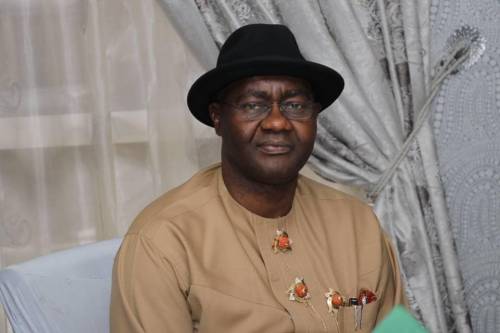The Shifting Sands of Nigerian Politics: Analyzing the Defections of Delta State Leaders to the APC
The recent political landscape in Nigeria has witnessed a significant shift with the defection of key figures from the Peoples Democratic Party (PDP) to the ruling All Progressives Congress (APC). Delta State Governor Sheriff Oborevwori, his deputy, entire cabinet, and former Governor Ifeanyi Okowa have all crossed the aisle, prompting analysis and speculation about the motivations and implications of this move. Magnus Abe, the Social Democratic Party’s (SDP) governorship candidate in Rivers State during the 2023 elections, views these defections as a consolidation of the APC’s power base in the South-South geopolitical zone. Abe, a former Senator and current Chairman of the National Agency for The Great Green Wall, argues that these defections are indicative of the strength of democracy under President Bola Tinubu’s leadership. This analysis delves into the various facets of this political realignment, examining the potential benefits for the APC, the impact on the PDP, and the broader implications for Nigerian democracy.
Abe’s perspective emphasizes the freedom of association and choice inherent in a democratic system. He contends that the defections demonstrate the APC’s appeal and its ability to attract leaders from other parties. This, in his view, is a testament to President Tinubu’s leadership and the direction in which he is steering the country. He highlighted the increased resources available to states under Tinubu’s administration, suggesting that this factor played a role in the Delta State leaders’ decision to join the ruling party. This financial incentive, coupled with the desire to align with the federal government for developmental purposes, forms a compelling narrative for the defections. Abe commends Governor Oborevwori and his team for recognizing this opportunity and seizing it to accelerate development in Delta State. This interpretation presents the defections as a pragmatic move by the Delta State leaders to secure their state’s future and enhance its access to federal resources.
The historical context of political defections in Nigeria provides further insights into the current situation. Abe recalls the 2007 defection of former Vice President Atiku Abubakar from the PDP to contest the presidency. He draws a parallel between Atiku’s move and the current defections, arguing that such realignments are not unprecedented in Nigerian politics. This historical perspective normalizes the defections, presenting them as a routine part of the political process. Furthermore, Abe dismisses concerns about the potential emergence of a one-party state. He challenges critics to focus on strengthening their own political platforms rather than blaming the APC for their perceived weaknesses. This argument shifts the focus away from the APC’s actions and places the onus on the opposition to rebuild and compete effectively.
The implications of these defections for the APC are substantial. They significantly strengthen the party’s presence in the South-South, a region traditionally considered a PDP stronghold. This expansion of influence could translate into increased electoral support for the APC in future elections and solidify its position as the dominant political force in the country. The influx of experienced political figures from the PDP also brings valuable expertise and resources to the APC, further enhancing its capacity for governance and political maneuvering. This consolidation of power could lead to greater stability for the ruling party and allow it to pursue its agenda with less resistance.
However, the defections deal a significant blow to the PDP. The loss of key leaders in Delta State weakens the party’s base in the South-South and diminishes its ability to challenge the APC’s dominance. This loss of influence could have long-term consequences for the PDP, hindering its ability to regain its footing and present a credible alternative to the ruling party. The defections may also trigger a ripple effect, prompting further defections from the PDP to the APC, exacerbating the party’s challenges. This weakening of the opposition could have negative consequences for democratic accountability, as a strong opposition is crucial for holding the ruling party in check.
The broader implications for Nigerian democracy are complex and multifaceted. While Abe emphasizes the freedom of association, critics might argue that the defections are driven more by political opportunism than ideological conviction. This perception could erode public trust in politicians and the political process, further disengaging citizens from democratic participation. The potential emergence of a one-party dominant system also raises concerns about the long-term health of Nigerian democracy. A robust and competitive political landscape with multiple strong parties is essential for ensuring accountability and preventing the concentration of power.
In conclusion, the defections of Delta State leaders to the APC represent a significant political development in Nigeria. While Abe views these moves as a positive sign for democracy under President Tinubu, the long-term consequences for the political landscape and the health of Nigerian democracy remain to be seen. The defections undoubtedly strengthen the APC’s position, but they also raise important questions about the motivations of the defecting politicians and the potential for a one-party dominant system. The onus is now on the opposition parties, particularly the PDP, to adapt to this new reality and present a compelling alternative to the ruling party. The future of Nigerian democracy hinges on the ability of all political actors to engage in constructive competition and uphold the principles of freedom, accountability, and good governance. Only time will tell whether these defections ultimately contribute to the strengthening or weakening of democratic institutions in Nigeria.














